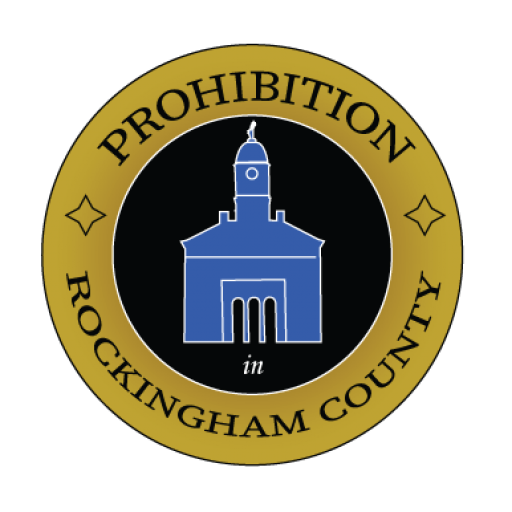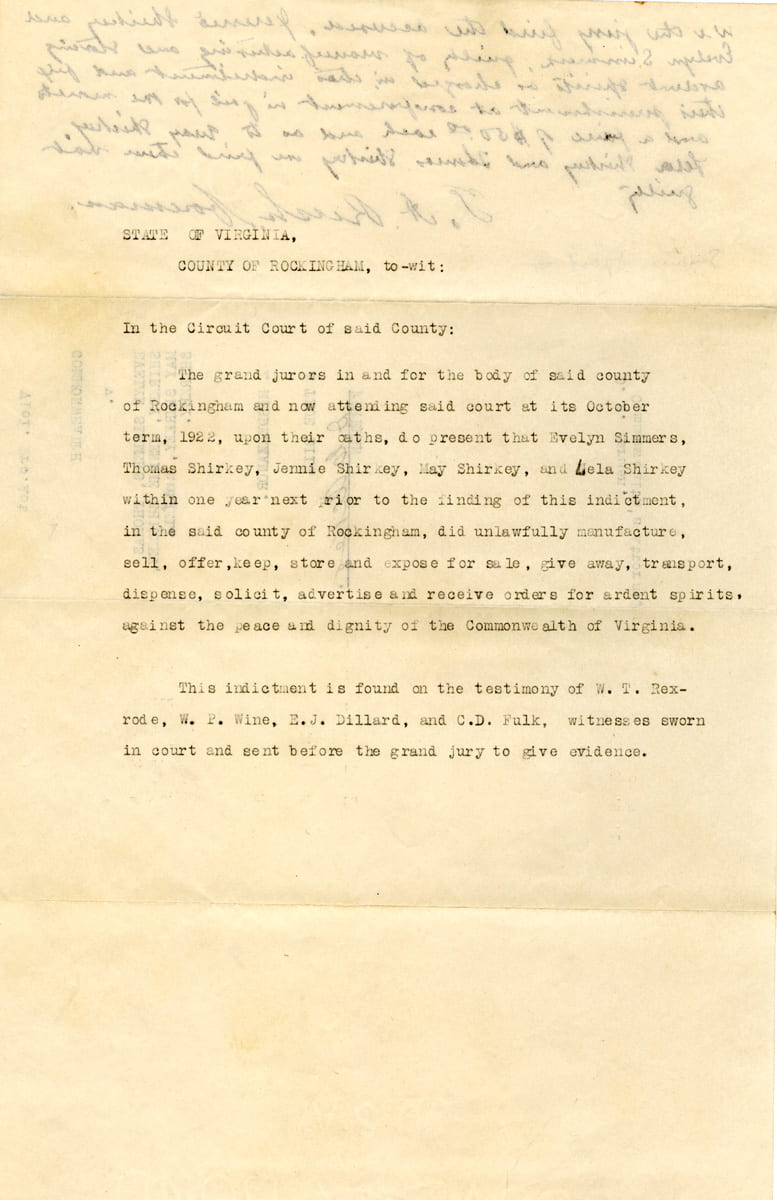December 19, 1916. The Daily News Record.
“The Laundress”
Not all women found dealing in alcoholic spirits immoral or taboo. Individuals like the
These records reveal the effects of prohibition on the lower class.
Take Aways
As the Great Depression deepened, poverty in rural Virginia worsened. Pressed by increasingly dire circumstances, many individuals turned to the perceived easy profits promised by bootlegging to see them through difficult times. As a result, federal agents and local enforcement officers found such economically vulnerable individuals easy targets for arrest. Resistance to Prohibition in Rockingham was less about temperance and political contest than about economic opportunism. With these records, the unique characteristics of prohibition in Rockingham can be better understood. Prohibition may have “failed,” but the attempt to ban alcohol and the enforcement of its laws had a profound effect–often adversely–for many people.
True Bill from the criminal case Commonwealth v. Evelyn Simmens et al.

